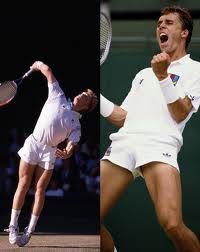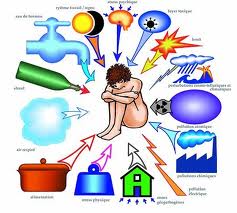Daily Grind
A retired pro says funny things sometimes. Today Marion Bartoli, not so long ago Wimbledon Champion, said she'd never encourage her children to become professional sports people. Can it be that the daily grind of sport is really so bad?
Every tennis pro has a story. On the commentary team with Bartoli are Rusedski, Croft, Becker. Tennis players tend to come out of the more priviliged or comfortable backgrounds. The parents have had time to take their children to lessons and tournaments. That in itself is a grind. Then, as soon as parents have decided they want their children to become professionals, they know full well that there is even more grind ahead of them. It is an interminable grind with plenty of frustration and moments of doubt. The moments of joy will be there too, but the parents are well aware of the struggle, and sometimes even decide to send their children on a professional career because they hate their own jobs.

The Bartoli comments maybe need putting in context. I don't know her full story, but she started young, and spent all her life, probably from about the age of four, with her father, who sacrificed his own interests and invested himself totally in her. She recognises that, and she realises that, above all, it was her father who didn't have a life, not her.
We've already established that children cannot decided for themselves that they want to become pros. Sure, one day they may see a great champion in action, and then declare that they have a dream to emulate that champion. But this is far from saying that they understand the grind that hasn't even started yet.
Bartoli seems to suggest that she has regrets, that the pain of practice and travelling and losing just simply isn't worth it. Maybe she's referring to the many colleagues who didn't achieve what she did, and who turned back to more banal lives sooner or later. Or maybe these were the lucky ones, those who realised that they were not dedicated or talented enough to stick it out. They quickly found themselves in more tolerable lives.
However, the fact that she would not do the same for her own children suggests that she treasures the "normal" existance that she believes most people have, the dreary day-to-day jobs, the problems at work, the financial pressures, the lack of perspectives for promotion or living elsewhere. Someone has told her that this life of normalness , of "middle-classness" is actually quite depressing. This is a life without dreams, in almost permanent inertia.
Grind out a career
So what is so bad about being a sports professional? We've had the positives about travelling the world, setting yourself up financially and professionally for life, and enjoying the thrill of competition and personal achievement. The negatives are, at worst, circumstantial.
By being a sports professional, you will be faced with jealous, disruptive people, competitors, colleagues and administrators. Not all people are like this, but the number of people who really support you is disproportionately small. I'd argue, that normal lives are like this too.
Then there is the problem of disappointment. For every victorious, satisfying moment, you're going to have another four of frustration and doubt. Normal life is like this.

Then what about all of the personal investment in time and money? It's thousands of hours and thousands of pounds. Is it really worth it? For the chance of an exciting life, of course it is. No question. I'd even argue that the modern child, faced with a society more and more obsessed with high qualifications and long studies, is also engendering similar sorts of time and money investments in his future.
So the only thing I'm left with is the daily grind. Is this what Bartoli means? Is this why she definitely doesn't want to go through this again. Reserving courts, organising practice partners, endless routine drills for fitness and tennis skills. I'd argue here that that is the satisfaction of tennis. You put in work, endless hours of practice and getting to matchplay situations, and you'll reap reward. Nothing comes without hard work, nothing comes without some sort of sometimes tedious work for some extended period.
Get out there and enjoy the grind. It's worth it.
